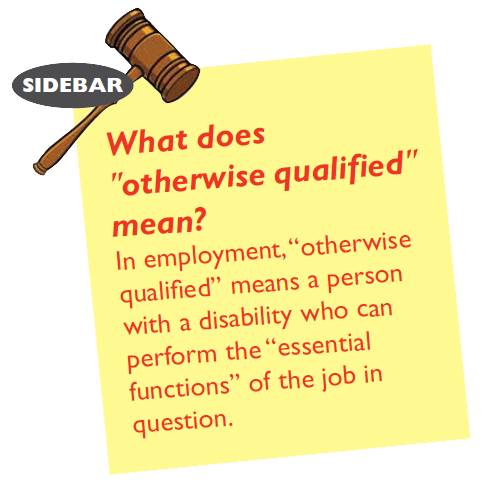

Bitter “after what they did to [her],” Ms. Arline sued the School Board, arguing that she was protected by the 1973 Federal Rehabilitation Act, which prohibits recipients of federal funds, like the School Board, from discriminating against the handicapped. She faced one big problem—the law did not mention contagious diseases. The judge assigned to the case decided that Congress had not intended to protect people with contagious diseases under the act and dismissed the case.
The judge’s decision was reversed by the Eleventh Circuit Court of Appeals, sending the case to the United States Supreme Court, the highest judicial body in the United States. The United States Supreme Court affirmed and ruled a federal law against handicap discrimination could protect those with contagious diseases.
 Sufferers from epilepsy, hemophilia and other conditions that often prompt discrimination were comforted by the court’s opinion. But it was acquired immunodeficiency syndrome (AIDS) patients who received the biggest benefit.
Sufferers from epilepsy, hemophilia and other conditions that often prompt discrimination were comforted by the court’s opinion. But it was acquired immunodeficiency syndrome (AIDS) patients who received the biggest benefit.
The Supreme Court agreed that Arline was a “handicapped individual” based on her disease and sent the case back to the Middle District court to decide whether Arline was “otherwise qualified” for the teaching position when she was terminated.
The court heard her case and concluded that Arline was “otherwise qualified” and determined that Arline posed no threat of communicating tuberculosis to the children she was teaching. The decision to terminate her was not based on reasonable medical judgments, but rather on “society’s myths and fears about tuberculosis.”
Ms. Arline was awarded full back pay, plus benefits, for the school years she was not able to work.
